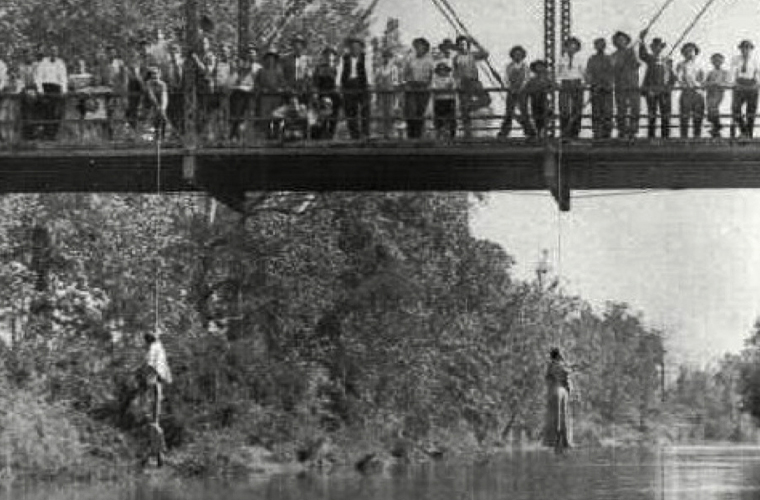On May 25, 1911, a horrific act of violence took place in Okemah, Oklahoma. Laura and L.D. Nelson, a mother and son, was lynched by a mob of white men. The reasons for their deaths are unclear, but it is believed that they were targeted because of their race and perceived wealth. Laura and L.D. Nelson were African-American landowners in a time when it was rare for black people to own property. They were successful farmers and had built a good life for themselves and their families. However, their success made them targets of jealousy and resentment from some of their white neighbors.
On the night of May 24, 1911, a white man named George Loney was murdered in Okemah. The next day, a mob of white men gathered and decided to take revenge on the Nelsons. They believed that the Nelsons were responsible for Loney’s death, although there was no evidence to support this claim. The mob went to the Nelsons’ home and dragged them out into the street. They were beaten and tortured before being hanged from a bridge over the North Canadian River. The mob then riddled their bodies with bullets.
The lynching of Laura and L.D. Nelson was a brutal and senseless act of violence. It was one of many such incidents that took place in the United States during the Jim Crow era. Lynchings were often used as a way to intimidate and terrorize black people, and they were rarely punished by the legal system. The Nelsons’ deaths sparked outrage across the country. The NAACP launched an investigation into the lynching, and their findings helped to raise awareness of the issue of lynching in America. The incident also inspired the song “Strange Fruit,” which was later made famous by Billie Holiday.
Despite the attention that the lynching of Laura and L.D. Nelson received at the time, their killers were never brought to justice. It was not until many years later that the state of Oklahoma officially recognized their deaths as a lynching. The legacy of the lynching of Laura and L.D. Nelson is a reminder of the deep-seated racism and violence that has plagued American society for centuries. It is important to remember their story and to continue working towards a more just and equitable society for all people.

